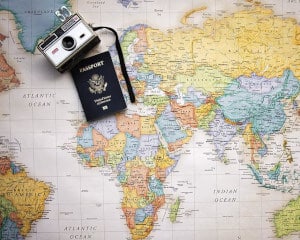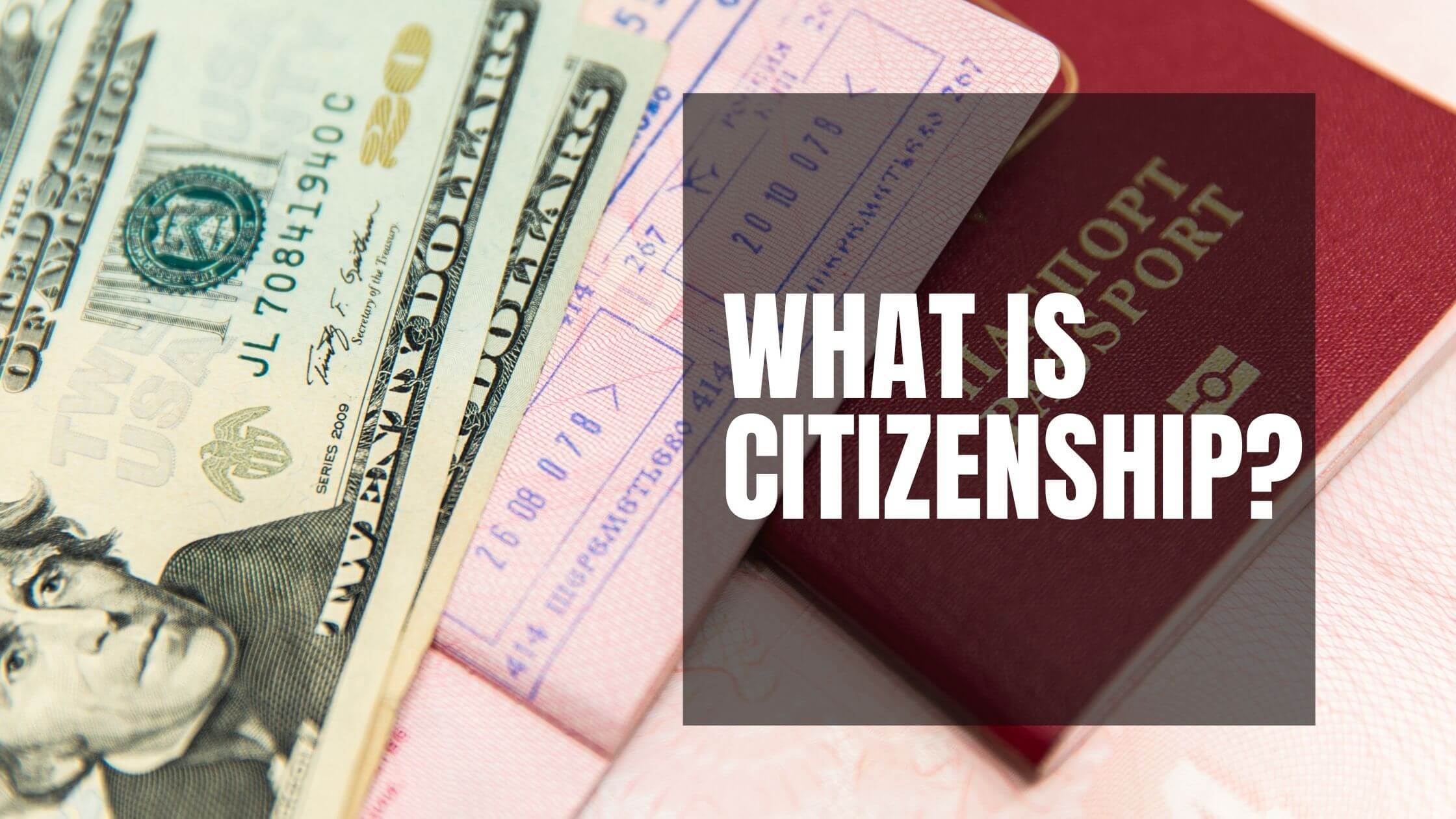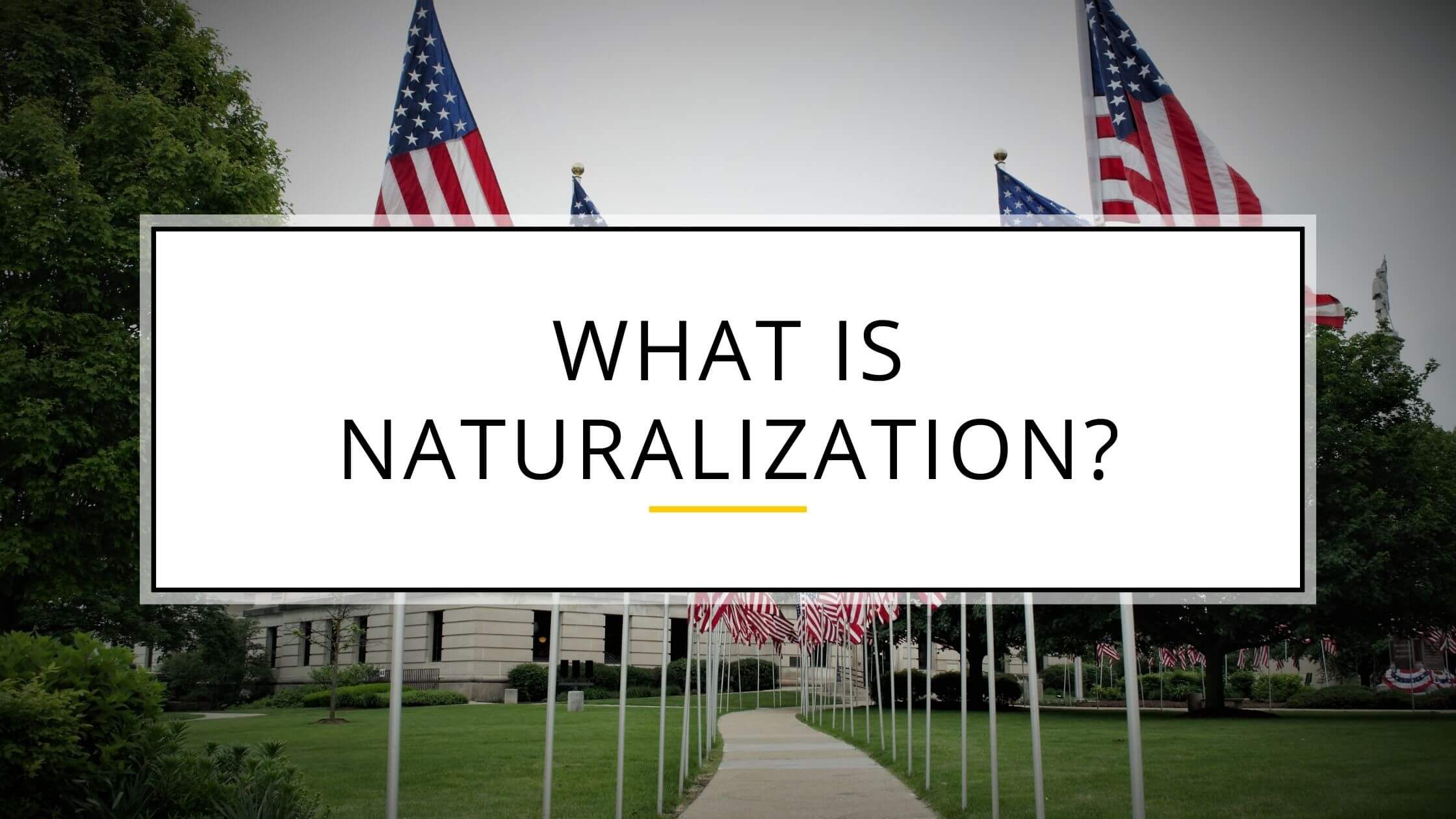Table of Contents
ToggleHaving citizenship status forms a bond between the citizen and the state, under which the citizen swears loyalty to state laws, with the state providing protection in return.
What is citizenship?
Citizenship refers to the legal right by which a person is allowed to live in a country without refusal of entry or being made to leave.
It denotes a type of freedom that others who don’t hold the status don’t have and allows the individual the gain certain rights and privileges. These often come in the form of social, political, and civil rights.
Overview
Often, citizenship is obtained through birth or, in some places, through naturalization. Naturalization provides a legal right for people who aren’t citizens of a country to obtain their citizenship and often requires completing an application, fulfilling certain duties, and meeting specific requirements such as having a citizenship interview and passing a citizenship test.

Every country sets its own rules and regulations for being granted citizenship. This also includes the criteria that must be met and the stipulations that would lead to the revoking of citizenship. Most of the time, acquiring citizenship will allow the person to obtain a national passport and be given the right to work, live in, and leave the country in the same way that those who are granted citizenship by birth will be allowed to.
In some cases, a country will allow for dual nationality or multiple citizenships to be held, whereas others only allow for the citizenship of one country. Because of this, a person may have to renounce citizenship of their country of origin to obtain citizenship in their newfound home.
How Citizenship Is Obtained
As outlined below, there are a number of criteria that must be met in order for someone to obtain legal citizenship.
Citizenship by family
If either one of the applicant’s parents, or both of them, are citizens of that country, the person is allowed to gain citizenship also. Previously, this right was only granted in the case of citizenship being held by the father.
However, this has now been extended to both parents due to equal rights. You can obtain citizenship here through ancestral or ethnic ties to the country. This is in line with what is known as a “nation state” in Europe. In the case of citizenship by family, a person can even be born outside of the country with which they are trying to acquire citizenship, as long as either of their parents hold citizenship.

Get Smarter on US News, History, and the Constitution
Join the thousands of fellow patriots who rely on our 5-minute newsletter to stay informed on the key events and trends that shaped our nation's past and continue to shape its present.
Citizenship by birth
Some countries or states allow a person citizenship by birthright. In such cases, the person is automatically made a citizen when born in the country. This way of becoming a citizen was first brought into effect by England and is held among other countries. Many countries within North and South America also grant birthright citizenship. However, most others refrain from allowing this to happen.
Citizenship by marriage
If a person becomes married to a citizen of that country, this might also make them eligible. They can obtain naturalization in countries where there are impositions against sham marriages involving a person who has entered into a legal marriage solely for obtaining citizenship rights.
In such cases, the couple might not even live together, and financial means might also be a motive being employed. Many countries, for example, the United Kingdom, Unites States, and Germany will only enable citizenship by marriage to be obtained when the person seeking citizenship has gained permanent residency status within the country.
Naturalization
Whereby a person has been given legal status to live in a country and has been living there for a certain length of time, they may be able to become a citizen through naturalization. Sometimes there are requirements that must be met first, such as demonstrating an adequate understanding of the life and language of the country they wish to become a citizen of. This may be in the form of a citizenship test. Moral standards must also be upheld in some circumstances, and in other cases, the person may have to renounce citizenship from their country of origin if dual citizenship isn’t allowed.
Citizenship by investment
This is also known as Economic Citizenship and requires the investment of money into a business or property, buying assets, or making donations in order to obtain the right to citizenship. Becoming a citizen through investment can involve a hefty price and fall in the range of between $100,000 and $2,000,000.

The removal of exclusion has taken place whereby in the past, a person might have been refused citizenship because of the color of their skin, their race, religion, or gender, to name a few reasons. For most countries, these exclusions no longer exist. However, in some Arab countries today, citizenship is seldom given to those who aren’t Muslim. An example of this is Qatar, which will give citizenship to athletes from other countries but only if they profess to be Muslim.
Unites States History of Citizenship
From the late 1700s to the middle of the 20th century, United States regulations employed racial requirements for obtaining citizenship through naturalization. The Naturalization Act, brought into effect in 1790, was the introduction to the law of acts put in place for acquiring citizenship. Unless one was from Europe or had ancestry from Europe, they weren’t allowed to be granted United States citizenship.
Laws enforced by the Supreme Court in 1857 stated that African Americans didn’t have the right to citizenship. Then when slavery had ended after the American Civil War, African Americans were allowed to become citizens. A Native American was only able to become a United States citizen following the introduction of the Indian Citizen Act in 1924.
When the Immigration and Nationality Act was made effective in 1952, impositions placed in the way of race and gender laws against becoming an American citizen were removed. Restrictions for visas remained in place, with only a certain number being granted to those migrating to the United States. However, when the Immigration and Nationality Act was passed in 1965, these restrictions were also lifted.











